A birch tree from my childhood visits me in spirit many years later and reveals something so profound about the world that it changes my life forever. How nature speaks in the stillness of the heart, and how we can learn to be quiet enough to hear. One of the few unscripted episodes of the podcast.
Transcript
I’ll never forget the day that I learned that nature can talk to us. And I don’t mean in the metaphorical* sense, like seeing a tree and seeing orange leaves announce that fall is coming. Or clouds announcing that the weather is going to change.
Yes, every part of nature speaks that way. But I’m talking this time about how every part of nature, as far as I can tell, also can speak to the inside of a person. In other words, not just the five senses, physical senses, but the subtle senses as well. That we can pick up, if we are listening, what other beings and forces and entities are saying.
The day I learned this wasn’t a very happy one. And I guess often it takes being reduced from our normal, productive selves to learn—to be opening to learning—something like this.
I was in my early thirties, so it was about thirty years ago. Half a lifetime ago! And I was sick with a chronic illness. About seven or eight months earlier, at holiday season, I’d fallen ill with a very bad virus with a high fever. And after the fever passed, I just didn’t get better, so that two weeks after I fell ill, if I crawled out of bed to go to the next room to get something, it was likely as not I’d have to get down on my hands and knees and literally crawl back to bed because I was too tired to walk.
I was a doctoral student, and I had neurological symptoms as well. There were days, weeks, when I couldn’t read; I couldn’t concentrate on what the words were saying; and I couldn’t retain anything that I’d read a paragraph before. This is serious business when you’re a doctoral student. And so I’d had to spend a lot of time resting and recovering and beginning to reorient my life toward a different, mm, a different center, I guess. I wouldn’t say that I knew at the time that I was doing this, but it was already beginning.
This was the time that I started looking outside Western medicine for ways of healing, because I had to. Because the doctors I consulted didn’t have anything to offer me, and the things they did have didn’t make any difference at all. So I’d started acupuncture, and I was considering other alternative treatments as well. So my horizon had begun to shift.
And one day—I remember I was still feeling really weak at this point—I was just up the street from Lake Merritt in Oakland, and our flat rested on a hillside. And it had sunk over the years so that one side of the room was imperceptibly lower than the other. And I remember it took a tiny bit more effort to walk one direction in that room than the other.
So on this particular afternoon I walked into the living room and sat down on the sofa. It was very quiet and peaceful. And I’m sitting there on the sofa to rest a few minutes before getting up to do something else, and suddenly there was a little intrusion in my mind. And I call it an intrusion because it was an image that I had not thought of for years. It was an image of a weeping birch tree that stood on the property of the house where I grew up, my childhood home.
Now I’d spent many hours, many afternoons in the summertime under that tree reading. I’d spent many hours in the autumn raking its leaves. I’d spent time in the winter looking at its gracefully threaded branches that flowed so smoothly toward the ground, like tiny ribbons of harmony flowing toward the ground. The tree looked stunning in winter; it looked exceptional in summer, full of life; and of course it was gorgeous in spring and fall as well. I had a relationship with that tree. But, I was in my early thirties, like I say; it had been, you know, fifteen years or more since I’d lived anywhere close to the tree, and I wasn’t in the habit of thinking about it.
But this afternoon—I sit down on the sofa, and suddenly it’s there in my mind! It’s there in a way that’s stronger than a memory. It’s there with presence. And I didn’t know what else to do, so I just paused and watched. And I appreciated its presence. And the fact that it was so present inside my mind helped me remember some of those good times I’d shared with the tree.
The presence—the feeling of presence—lasted for some minutes. And after some time had passed, the image faded. And I opened my eyes, and it was the same afternoon, and nothing had changed, except I wondered what had happened.
I went on with my life, doing a little bit of reading—I was recovered enough by this point I could read again, a little bit—and a couple weeks later, my brother calls. And my brother still lived in our hometown, and he was looking after our parents at the time. And he calls and he says, “Well, the birch tree—it’s gonna have to be cut down. It’s got a disease or something.”
And I started! Suddenly something made sense. Like, the birch tree itself had come to speak with me. Like the birch tree itself had told me there was going to be a change. And I recognized that presence, that visit, as a farewell visit. And I felt grateful for it. I spent a few more moments with the tree, later, saying goodbye, in my mind. And I visited a few months after that, shortly after the tree was cut down, and I brought home pieces of the limbs, and I still have a couple of those small pieces, and they still travel with me.
That was the first day I recognized that other beings in nature can speak with us. And it might have happened because I was quiet. Because I was no longer able to be wrapped up in the busyness of my life. So my head wasn’t so filled with the voices of human creatures and the voices of all the things that I needed to do, and the voices of time and schedules. And there was room. There was space in my heart to be quiet—not because I wanted it that way but because it had to be that way. I had to stay quiet in order to recover, in order to heal. And the tree came to visit during that quietness and revealed something so profound that it changed my life forever.
In the years since, I’ve come to recognize that every being and entity and part of nature has that ability to speak with us, if our minds have the space, if our hearts are open. If we’re quiet enough inside to hear. I have spent many years learning how to be quiet enough, and these days I help others learn that skill as well.
I call it a skill, but it’s really just an openness; it’s just a willingness. It’s not hard to do; I find that people can hear the voices of nature very quickly when they become willing for the world to be that way.
And that’s the other thing I find: so many people do want the world to be that way. Almost everyone I talk with has some special experience—maybe it happened when they were a child, maybe it happened during a time of crisis in their adult life—whenever it happened, they have a story to tell about a time when the natural world burst out of the confines that we usually put around it and made itself present to us in a way that we never expected and maybe weren’t even all that open to seeing or hearing at the time.
Perhaps it was a moment when they felt at one with everything; perhaps it was a moment when the little ravine behind their house suddenly glowed with a more-than-usual presence. Perhaps it was a moment when they knew everything would be all right, and they felt comforted.
We need those stories. We need every one of them. So I invite you to become willing. To become willing to hear nature in this way. To become willing to be reacquainted joyfully with your own stories. And to claim them, and to own them, and to be proud of them. They speak something truthful, something tremendously important to know, at a time like this, when we face the crisis of climate change and habitat loss. It’s only by remembering and owning and telling these stories that we can nudge this world toward different ways of being. Better ways of being neighbors—better ways of being neighbors with all these other creatures with whom we share the planet.
Here’s wishing you joy in remembering, and joy in knowing the companionship of other creatures. And here’s wishing you the joy of an open heart, willing to listen.
* By “metaphorical,” I mean, paradoxically, the physical and kinetic forms of communication—when plants or animals broadcast signals of color or movement or sound that we pick up through our physical senses. This is communicating, but it is not talking in the sense that humans talk, by conveying thoughts or feelings directly to one another, usually through language. Most people in today’s world believe that plants and animals do not talk, so the kinetic communications they utter become, at best, metaphorical “talk.”
For digging deeper
I tell the full story of how the birch tree changed my life in Kissed by a Fox, where I also explore how learning that plants and animals can communicate leads a person to change their worldview as well.
The story also forms the foundation of a scholarly paper, “Being Known by a Birch Tree,” published in the Journal for the Study of Religion, Nature, Culture.
I’m getting to know the work of Monica Gagliano, an Australian plant scientist who communicates with plants both through the physical senses and through the heart, or shamanically. Her lab research is demonstrating that plants have the ability to remember—one of the traditional scientific measures of intelligence. You can read about how she listens to plants in her book Thus Spoke the Plant.
For a book-length meditation on listening to plants and animals and orienting both personal and cultural life toward interrelationship with them, read Braiding Sweetgrass, by botanist and member of the Citizen Potawatomi Nation member Robin Wall Kimmerer. The book hit the NYT bestseller list suddenly this past January, seven years after it was first published! On Robin’s author page at Milkweed Editions you can find links to talks that she has given. I can guarantee you will be inspired by her interview at On Being, available here on YouTube.

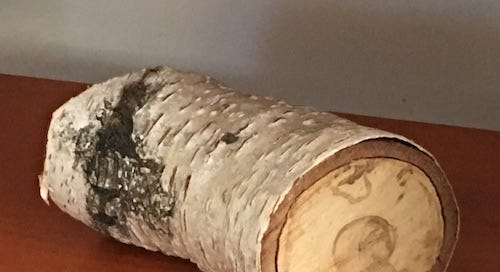
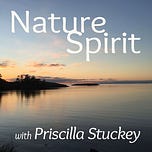



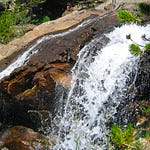
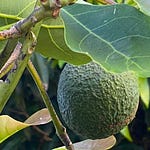
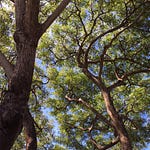
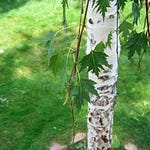
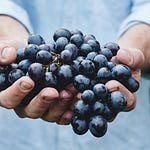
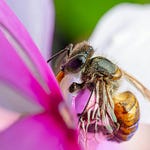


Share this post